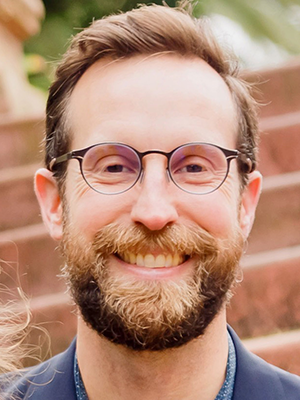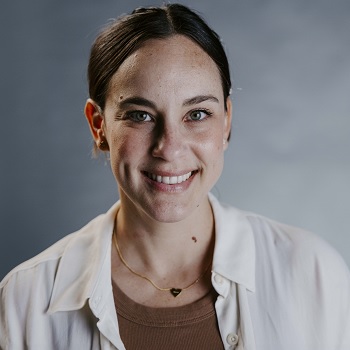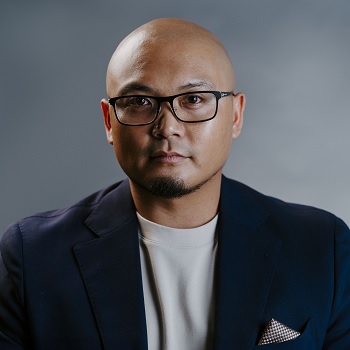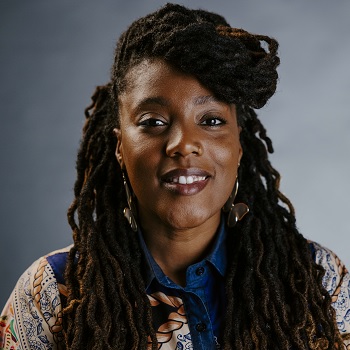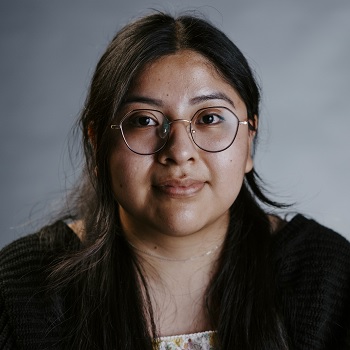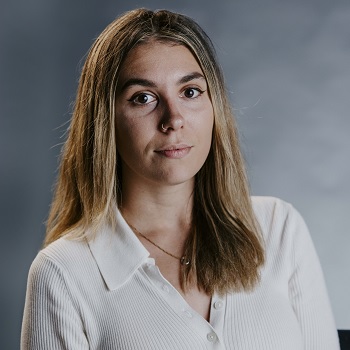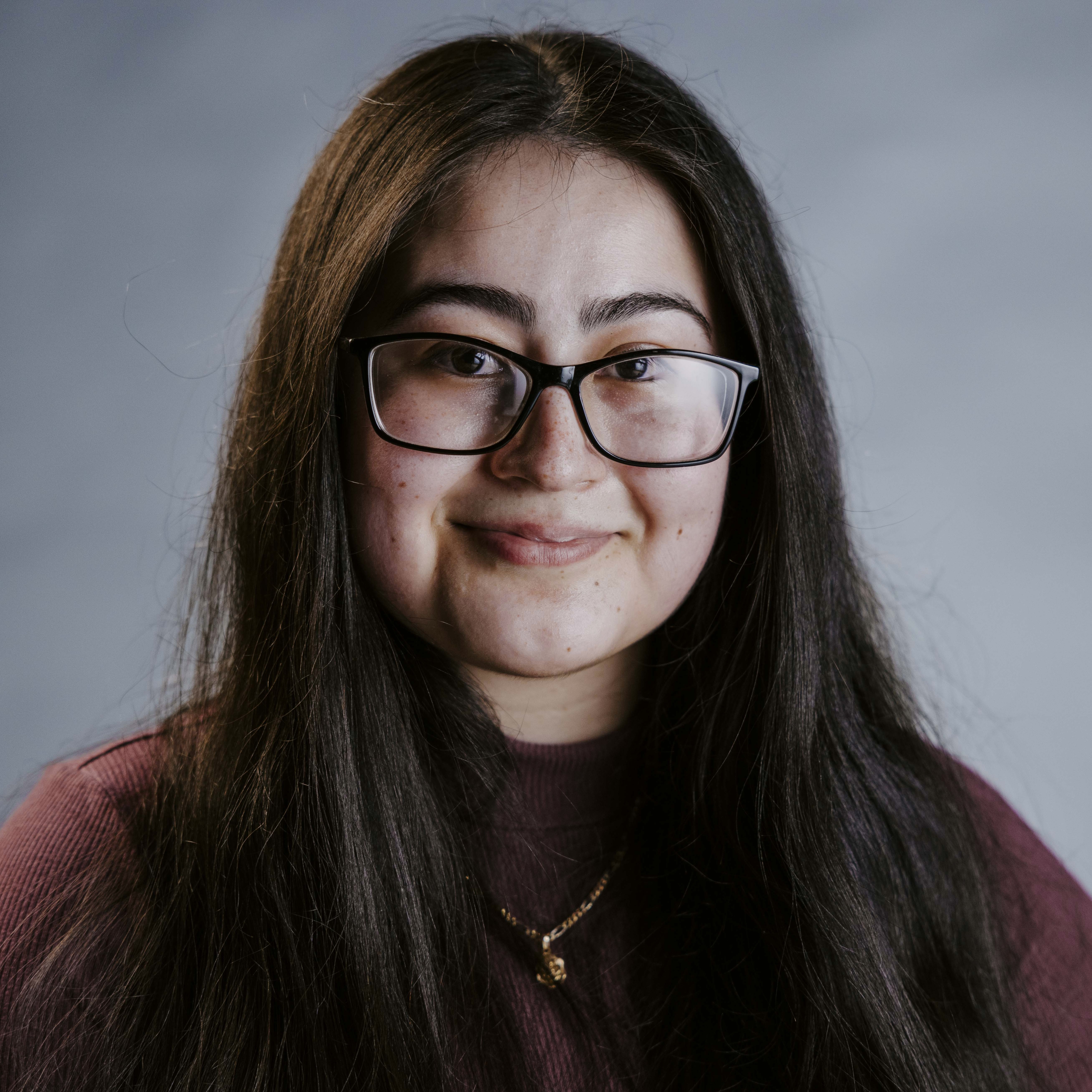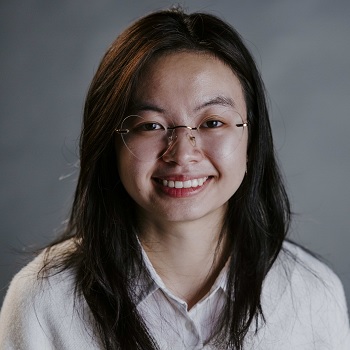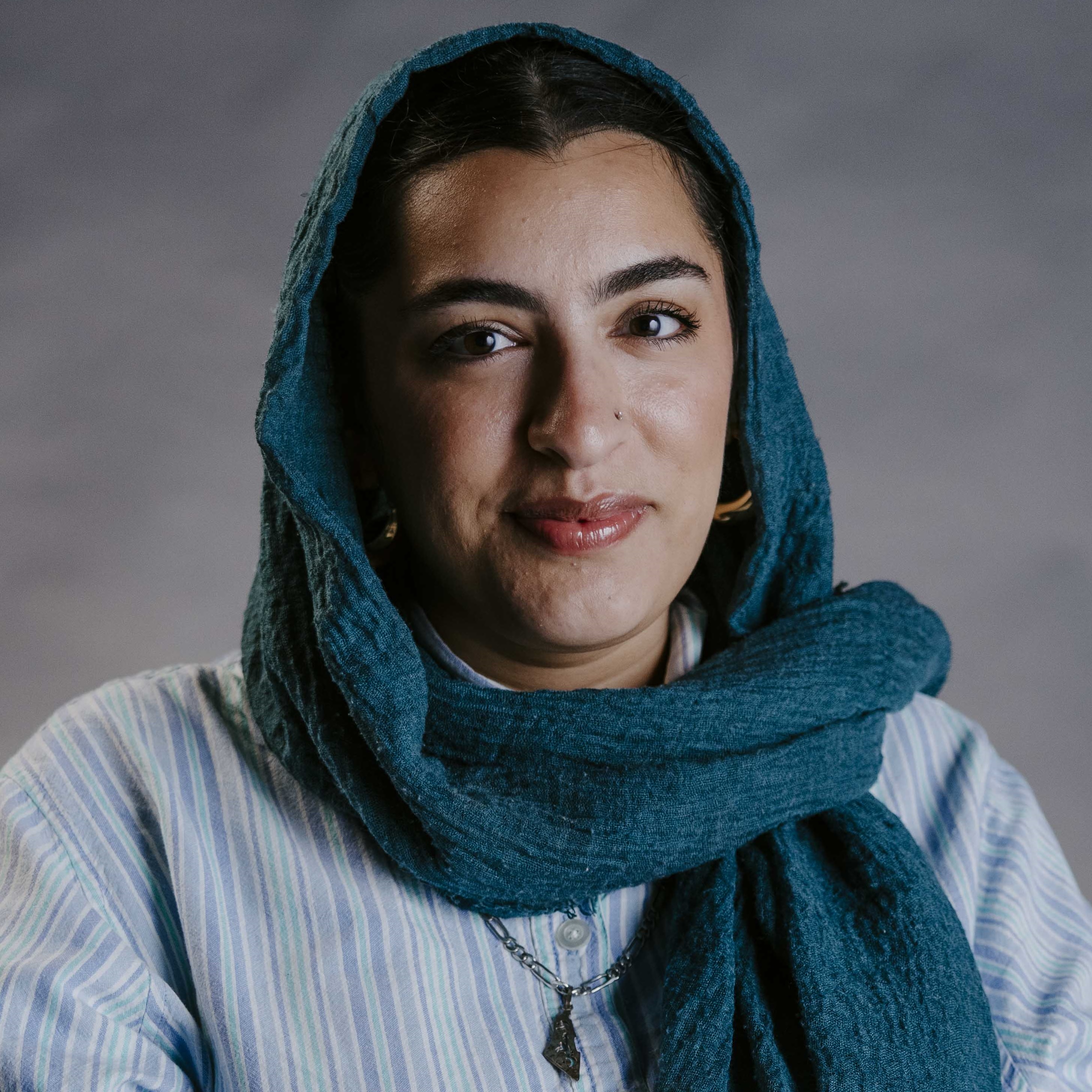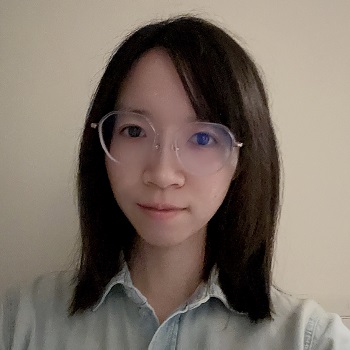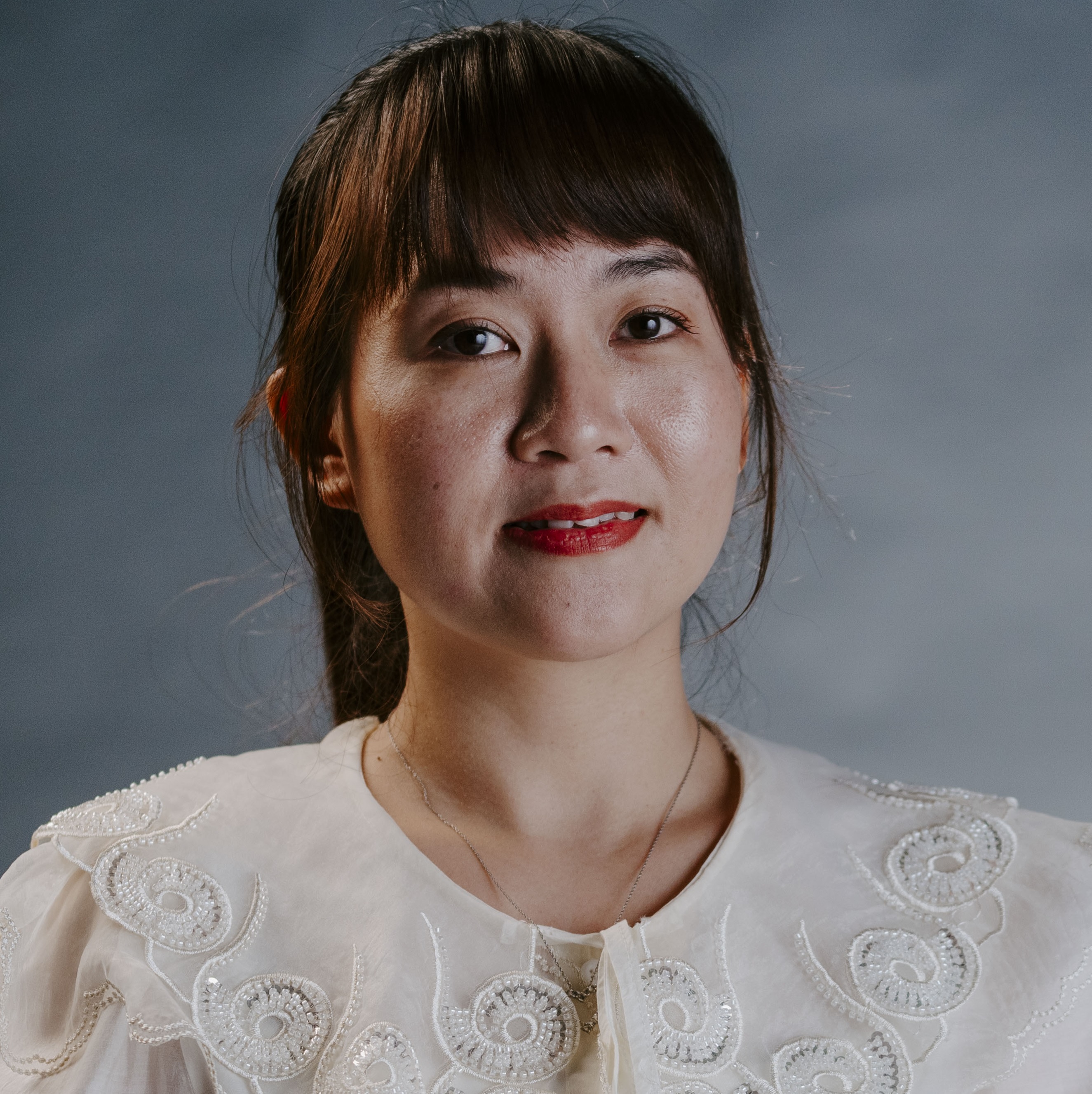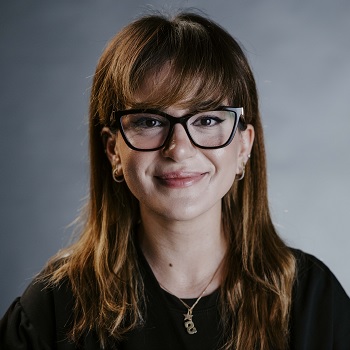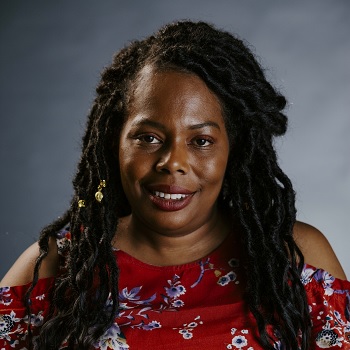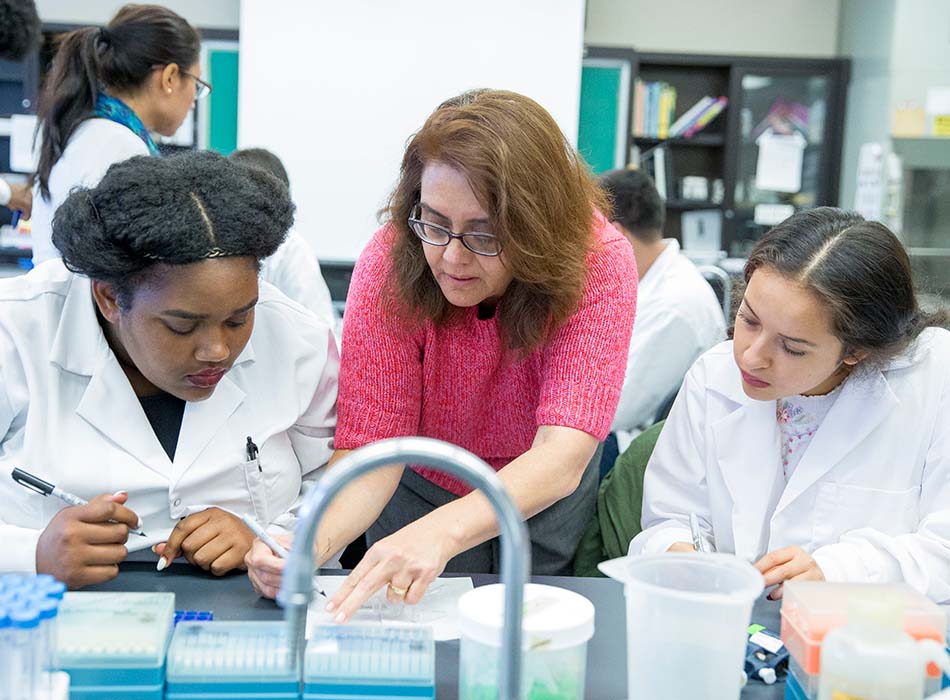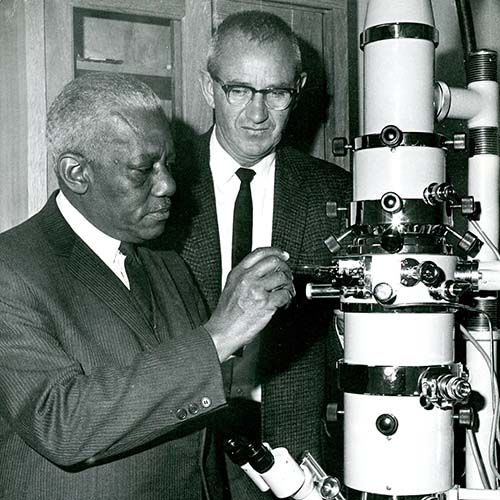SAN FRANCISCO – May 15, 2024 – San Francisco State University announced today that it received $14 million from the Genentech Foundation to support two University programs that are training the next generation of life sciences leaders. The new five-year grant is the latest in the Genentech Foundation’s transformational support for University programs, which has totaled more than $33 million during their long-lasting partnership. This partnership has impacted more than 700 students since 2008, and an additional 350 students are projected to be supported by the new funding.
The new funds will continue sponsoring San Francisco State’s Genentech Foundation Scholars and PINC (Promoting Inclusivity in Computing) programs. In 2008, an earlier iteration of the program that would become the Genentech Foundation Scholars program began at SF State to support graduate-level students with tuition and scholarships, mentorship, career preparation and research experience. In 2019, the Genentech Foundation awarded the University a historic $10.5 million grant to continue this program and expand support to undergraduate students, followed soon after by additional funding for the PINC program from the Genentech Foundation and Genentech Inc.
This latest $14 million grant will extend tuition support to freshmen and sophomores to cover full tuition for all undergraduate students in the Genentech Foundation Scholars Program for the first time. It will also increase support and research opportunities for students in the PINC programs.
Since the Genentech Foundation-SF State partnership began, the Genentech Foundation Scholars program has had a tangible impact on diversifying the STEM Ph.D. pipeline and increasing the number of underrepresented students in Ph.D. programs. One hundred and six students — 22 undergraduate and 84 master’s students — have enrolled in Ph.D. programs. Thirty-eight students have completed their Ph.D. program, with students from the 2019 grant cohorts still working on their Ph.D. degrees. Additionally, due to the support provided to remove barriers that typically prevent underrepresented students from completing their degrees in four years, the on-time graduation rate for undergraduate scholars in the program is three times higher than that of SF State students from similar backgrounds who are not in the program.
“The Genentech Foundation Scholars program isn’t just launching more students into Ph.D.s in science and medicine — it’s challenging the status quo perception of which institutions can produce top Ph.D. talent and which students are capable of leading tomorrow’s innovation,” said Kristin Campbell Reed, executive director of the Genentech Foundation. “SF State truly meets students where they are and believes in their boundless potential. We are proud to be doubling down on our investment and invite others to join us in what we believe is a scalable model for change.”
Genentech Foundation Scholars Program
$11.7 million of the grant will go to SF State’s Genentech Foundation Scholars Program. Each year, approximately 120 students participate in the year-long program. In addition to tuition, students receive a stipend and participate in research activities with the support of peer and faculty mentorship. The program offers summer research opportunities, preparatory calculus and chemistry courses for pre-freshmen participants, weekly career-preparation seminars and graduate school application prep.
PINC (Promoting Inclusivity in Computing) Program
The remaining $2.3 million of the grant will support SF State’s Gen-PINC Scholarship and PINC Summer Program, programs that empower students to develop computational skills applicable to real-world research and provide opportunities to work with researchers from industry and other academic institutions. For the Gen-PINC program, the grant renewal will increase the amount of scholarship funding each scholar receives, provide partial tuition for undergraduate scholarship recipients for the first time and expand the budget for student-mentor support. The new grant will also provide students in the eight-week PINC Summer Program more opportunities to explore their interests and develop skills critical for their future careers.
“Our partnership with the Genentech Foundation has accelerated the expansion of successful training programs preparing our diverse students for exciting graduate programs across the country,” said College of Science & Engineering Dean Carmen Domingo. “Working with Genentech scientists, our faculty are creating innovative curricula that apply machine learning approaches to solve real-world biotech problems. These experiences are making our students uniquely prepared for the biotech workforce needs of the future.”
Student impact
SF State undergraduate Sergio Gonzalez Jr. plans to become a professor at a research institute and a biotech leader in regenerative medicine. He’s also quick to emphasize that he wants to be an impactful mentor like the ones he has had at SF State and start programs like the ones he has benefited from. He was supported by both the Genentech Foundation Scholars Program and the Gen-PINC scholarship and has participated in other PINC programs. He originally transferred to SF State in 2013 but left in 2016 for personal reasons. During his academic hiatus, he began working as a medical assistant during the COVID-19 pandemic and realized his desire to help his community through research. He returned to SF State in 2022 to complete his education. Now, he’s making major strides toward his career goals by starting Vanderbilt University’s Interdisciplinary Graduate Ph.D. program in the fall to pursue biomedical research. He’s been awarded the prestigious National Science Foundation Graduate Research fellowship (NSF GRFP).
“I was able to tap into my inner confidence that everyone else saw in me, but I wasn’t really tapping into because of my situation,” he said of the impact of these programs. Gonzalez, like many students, was supporting himself. The financial support and mentorship from these Genentech Foundation-funded programs gave him the time and space to focus on research and achieve a 4.0 GPA.
“Learning that you don’t have to be this picture-perfect person to obtain these fellowships was crucial for me to pursuing them further because I left school,” Gonzalez explained. “When I came back, I remembered these programs and I told myself that in order for me to succeed, I need to be fully funded. These programs will help me get there.”
For more information about these programs, email Professor Emeritus of Biology Frank Bayliss at fbayl@sfsu.edu for Genentech Foundation Scholars and Program Manager Michael Savvides at pincsfsu@sfsu.edu for PINC.
###
About San Francisco State University
San Francisco State University is a public university serving students from the San Francisco Bay Area, across California and around the world, with nationally acclaimed programs that span a broad range of disciplines. More than 23,000 students enroll at the University each year, and its nearly 294,000 graduates have contributed to the economic, cultural and civic fabric of San Francisco and beyond. Through them — and more than 1,800 world-class faculty members — SF State proudly embraces its legacy of academic excellence, community engagement and commitment to social justice. For more information, visit sfsu.edu.
About the Genentech Foundation
Since 2002, the Genentech Foundation has worked to unlock access to educational and career pathways in the life sciences and medicine. The U.S.-based, private charitable foundation was established by Genentech, a leading biotechnology company that discovers, develops, manufactures and commercializes medicines to treat people with serious or life-threatening medical conditions. Genentech, a member of the Roche Group, has headquarters in South San Francisco, California. For further information, visit www.gene.com/good/giving.
